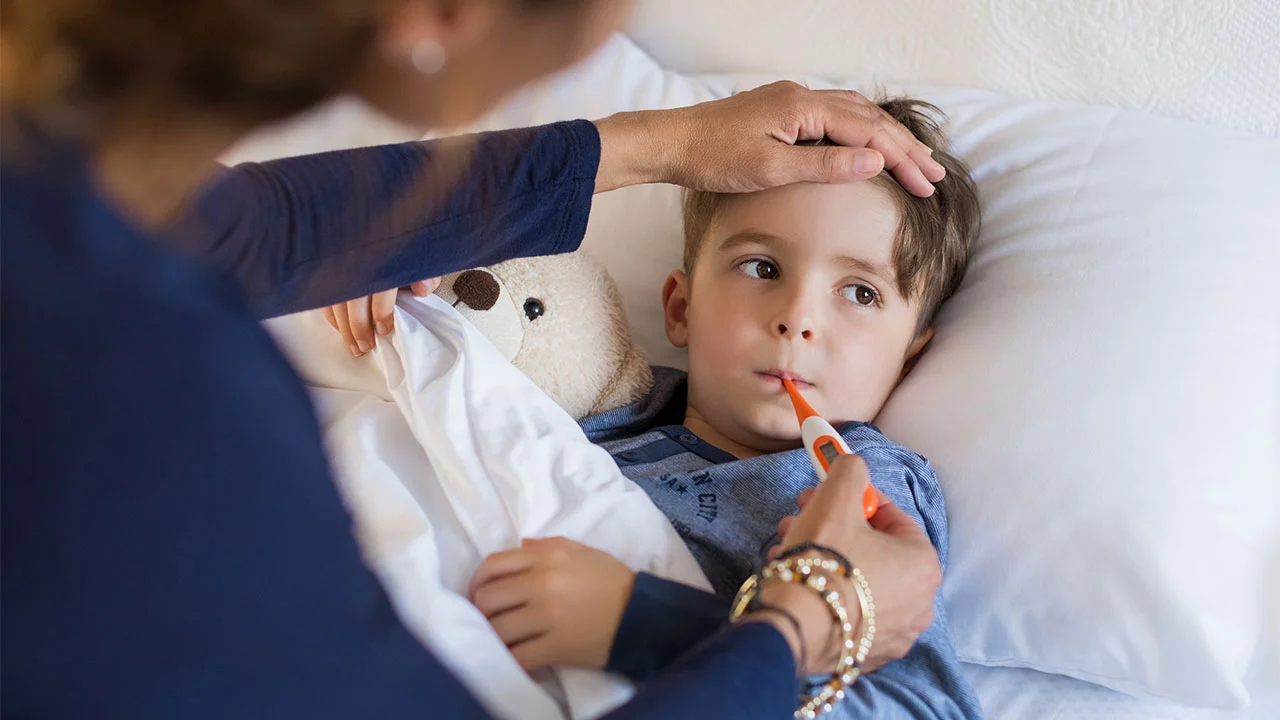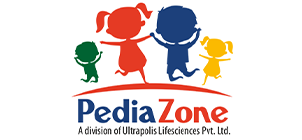
Causes of Typhoid Fever in Children
Typhoid fever is a sickness that can affect kids, and it’s important for parents and caregivers to know about it. This illness is caused by tiny bacteria called Salmonella Typhi. These bacteria can make their way into our bodies through dirty water and food. So, when children drink or eat something contaminated, they might get sick with typhoid fever.The symptoms of typhoid fever in kids include a high fever, stomach pain, headaches, and sometimes a rash. It can make them feel very tired, lose interest in eating, and have problems with their tummy. If you think your child might have typhoid fever, it’s important to go to the doctor. They will do a simple blood test to find out if the bacteria are causing the illness.
But there’s good news – typhoid fever can be treated with medicine that doctors prescribe. It’s important for kids to take all the medicine, even if they start feeling better before it’s all finished. Parents can help by making sure their child gets plenty of rest, drinks lots of water, and eats healthy foods during their recovery.
Some Of The Causes Of Typhoid Fever In Children Are
Contaminated Food and Water
The primary and most prevalent cause of typhoid fever in children is the consumption of food and water contaminated with the Salmonella Typhi bacterium. Unsanitary conditions, common in areas with poor sanitation infrastructure, provide an ideal breeding ground for these bacteria. As children consume contaminated substances, the risk of infection increases, making it vital to address water and food safety in such environments.
Faecal-Oral Transmission
Typhoid fever primarily spreads through the faecal-oral route, a transmission mechanism that poses a risk to children, especially in crowded living conditions or regions with inadequate sanitation facilities. The bacterium from infected faeces can contaminate water sources, food, or common surfaces. Inquisitive children, who often explore their surroundings, may come into contact with contaminated objects, increasing their vulnerability to the infection.
Close Contact with Infected Individuals
Direct person-to-person contact with an infected individual represents another path for the transmission of typhoid fever, within households or communities where hygiene practices may not be up to the mark. Children, in their everyday interactions, may touch contaminated surfaces or objects and introduce the bacteria into their digestive systems. Improved education on personal hygiene and health practices within communities can help children to stay safe.
Asymptomatic Carriers
A lesser-known but important cause of typhoid fever is the existence of asymptomatic carriers—individuals who have the Salmonella Typhi bacterium without showing any symptoms. In communities lacking routine health screenings, these carriers can unknowingly contribute to the spread of the infection. Children may unknowingly come into contact with carriers, complicating efforts to prevent and control the disease.
Travel to Endemic Area
Children who travel to or reside in regions where typhoid fever is endemic face an increased risk of contracting the infection. These areas often have high levels of contamination in water and food sources, coupled with sanitation practices. The exposure risk is amplified as children live in unfamiliar environments and engage in activities that may involve consuming local food and water.
Keeping children safe from typhoid fever involves doing a few important things. We need to make sure the food and water they eat and drink are clean and not contaminated. It’s also vital to teach them good habits like washing hands and keeping things clean. Knowing that some people can carry the sickness without showing signs is important too. By taking these steps and making cleanliness a priority, we can help protect our children from getting sick.


